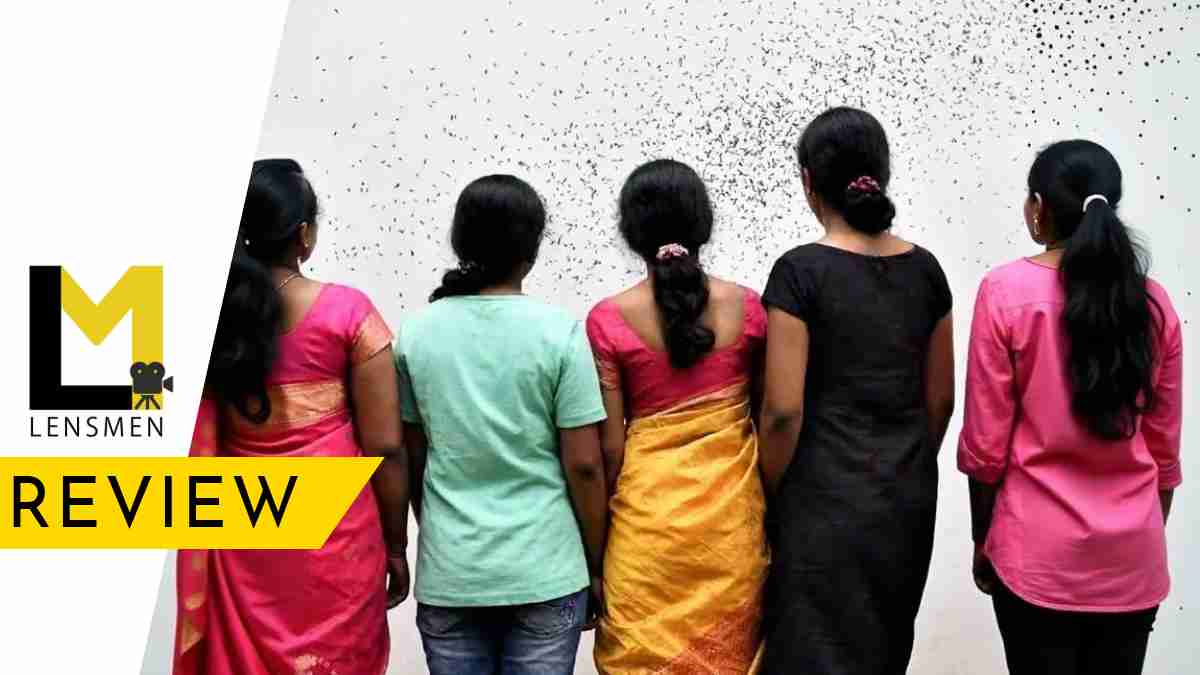Her, the latest Malayalam film, directed by Lijin Jose and written by Archana Vasudev, is a contrived anthology that wants to tell multiple stories of women in a very slim space. On a synopsis level, this can be a tempting challenge for makers. Unfortunately, the script is struggling to have a nuanced approach toward each of the themes it wants to address. The segments are way too brief that before they can penetrate the skin level, the movie moves on to the next chapter.
Even though the film feels like an anthology series, it is actually a single story. The problem is that the script is forcefully infusing almost three stories out of the five into the main narrative just to be a mouthpiece of various women’s issues. Having a political stand in the story that narrates tales from a female perspective is definitely a good thing. But the issue with Her is that the movie is largely on your face. The placement of dialogue and drama in some of the segments is so loud and evident that the absence of craft in presenting those ideas starts to bother you.
The Aishwarya Rajesh starrer segment is too swift, and it just doesn’t have the time to show us that character’s world. The whole episode where she is in search of a toilet has this contrived feel. I can understand that writer Archana Vasudev is trying to make the whole thing a metaphor for the ant-like male intrusion and how sometimes fellow women just don’t help you in those situations. But these circumstances are way too on your face. The solution the segment ultimately offers felt loud and shallow.
The weakest and perhaps the most disjoint segment in the film was the Remya Nambeesan track about a female film producer who also happens to have a youtube channel. It is basically a segment that is designed to mock the fakeness spread by influencers and how they are usually supported by a team to have this image. While the relevance of showing such a character made sense, the caricature nature of the character and the desperation to make it spoofy every second makes it less funny. The only area where it manages to be unpredictable was the very last moment of that segment, but that wasn’t enough to fix the rest.
The episode that features this elderly couple, played by Urvashi and Prathap Pothen, was a breezy one that managed to convey its intentions somewhat effectively within its short span. It is ultimately talking about the fear of being replaced and also the fear of being alone in a relationship. Even though it has no major surprises, the performance of Urvashi really reduces the dialogue-heavy nature of the film, which was a major issue in the other portions of the movie.
There is a moment at the very end of the Lijomol Jose segment where her grandmother looks at her and smiles, as an appreciation for the decision she made. That smile sort of saved the whole segment from being this stretched-out preaching. Here also, the idea is interesting on paper. The age-old way of measuring compatibility in a very platonic way gets questioned here. And I really liked how the man was made the initiator for the whole thing. Among the movies, this was perhaps the segment that worked for me in terms of the ideas being presented in a subtle manner.
The film’s final chapter, which stars Parvathy Thiruvoth, definitely has a very convincing performance from the actor. But the writing feels like this very cheesy “Karma is a boomerang” kind of predictable one after a point. The way the script tries to make it difficult for the character by throwing hurdles in front of her felt very artificial, and there are many areas where her reason for not communicating things just doesn’t make any sense. And if you are not doing ambient viewing, the twist in the tale is easily predictable, thanks to the stress given to a particular word.
Even though it is from a female perspective, Her is not trying to justify any of its characters’ behavior or asking the audience to cut some slack for them. There are these absolutely bad and self-centered characters, and Archana is perhaps trying to make a statement that you don’t have to put women on a pedestal to tell their stories. But, the statements of this movie are largely on your face and extremely verbal in some areas. The relatability and impact would have been high if there were more moments like Abhi’s grandmother’s smile. Lijin Jose, who previously made 8 1/2 Intercuts, a documentary about filmmaker KG George, is paying tribute to the master with the film’s final shot. But sadly, the story felt less worthy of such a tribute.
The segments are way too brief that before they can penetrate the skin level, the movie moves on to the next chapter.
Green: Recommended Content
Orange: The In-Between Ones
Red: Not Recommended


